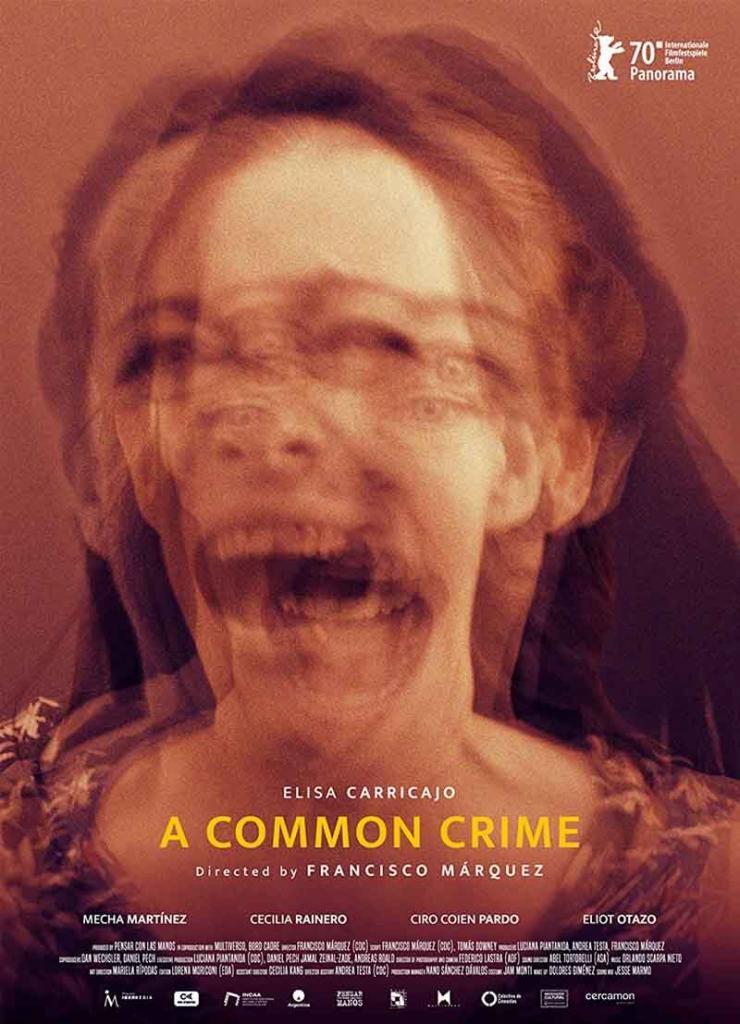A Common Crime (2021) is the new Argentinian psychological thriller with supernatural elements from director Francisco Márquez. Having not seen his directorial debut The Long Night of Francisco Sanctis (2016), I went into this piece relatively blind, albeit interested in the Argentine perspective of what a grounded horror/thriller should be. What I didn’t expect was that the film might reignite memories of one of my favorite, though sadly most neglected, directors.
From its opening scenes A Common Crime permeates a sparse realism that, while inducing a mild anxiety, also for me echoes the subtle and meticulous stylings of Austrian virtuoso Michael Haneke. With majority diegetic sound and very little music, viewers are made to feel a part of the world they are watching, that is if they can get past the apparent ‘slowness’ that it shares with Haneke’s work. Long, rigorous camera takes allow each scene and the performances within them to breathe, and the result is absolutely hypnotic.
The plot is simple enough; sociology teacher Cecilia (Elisa Carricajo) has a maid whose son is constantly harassed by the police. One night Cecilia awakens to the boy knocking frantically at her door. Fear takes over and she merely hides in the shadows as some vague struggle seems to occur. When the boy shows up dead the next day Cecilia is plunged into a personal hell of paranoia and self-blame. Clear and definite themes of guilt and grief are explored within the tight, oddly-claustrophobic framing of Márquez’s world. Subtlety and detail are offered in bucketloads, along with a surprising amount of atmosphere from such a dark and restrained story.
That being said, this is no by-the-numbers thriller. Borderline experimental in presentation, you’d honestly be forgiven for growing tired of the repetitive psychological episodes A Common Crime descends into, or at least for hoping for some kind of payoff at the end of it all. That expectation came to me from repeated past viewings of Haneke’s beautifully bland stylings which almost always involved some kind of heavy shock punishment for letting his work seep into you. While trying to navigate the minefield of spoiler-free reviewing I can only say I was left with a confused, perhaps a little concerned, expression as the credits began to roll on this one. It took until the ending for me to realise that A Common Crime was nothing like I had expected. This is, on the one hand, a testament to its mesmerising nature, though that nature was primarily the thing which left me feeling lost on more than one occasion.

Rather than make a full-blown psychological horror, Márquez shows a lot of discipline and moderation. A Common Crime sticks to it’s drama-fuelled thriller territory while using classic horror tools to enrich the presentation of its story. While most scares are longer-running and based around reactions, any up-front chills attack within enough space to enhance their effect. Even the score felt more dreamy than dread-inducing. That being said, the parts come together quite effectively as a whole. The unease I felt during its run time did reach that of films such as Hagazussa (2017) and Krisha (2015), as it relies more on its commitment to an uncanny feeling of irregularity that admirably holds up to the very end.
A Common Crime is an honest, bold and intellectual drama which teeters on thriller territory in plot alone. Keeping enough to its chest to allow its mystery to envelop the viewer, it thrives in its own quiet world with barely an enhancement from clever editing or sound tricks, which in itself is an accomplishment. It may not be quite what you’re looking for, but give it time to sink in and you’ll be wanting more like it in a heartbeat.
Joe first knew he wanted to write in year six after plaguing his teacher’s dreams with a harrowing story of World War prisoners and an insidious ‘book of the dead’. Clearly infatuated with horror, and wearing his influences on his sleeve, he dabbled in some smaller pieces before starting work on his condensed sci-fi epic, System Reset in 2013.Once this was published he began work on many smaller horror stories and poems in bid to harness and connect with his own fears and passions and build on his craft.
Joe is obsessed with atmosphere and aesthetic, big concepts and even bigger senses of scale, feeding on cosmic horror of the deep sea and vastness of space and the emotions these can invoke. His main fixes within the dark arts include horror films, extreme metal music and the bleakest of poetry and science fiction literature.
He holds a deep respect for plot, creative flow and the context of art, and hopes to forge deeper connections between them around filmmakers dabbling in the dark and macabre.

